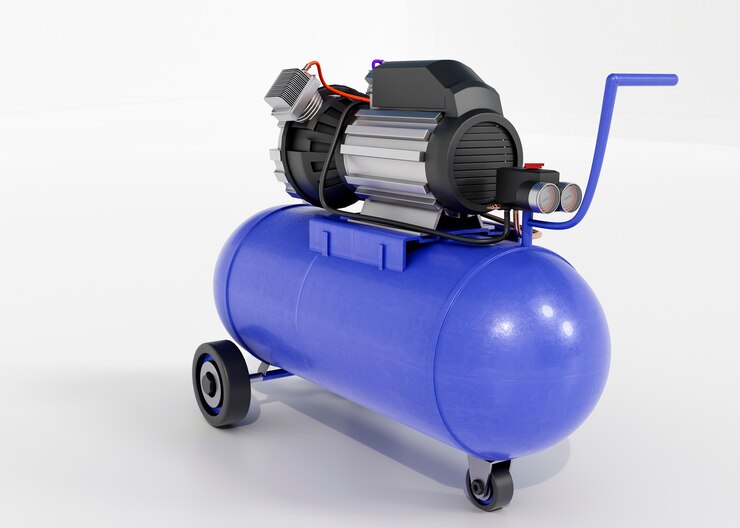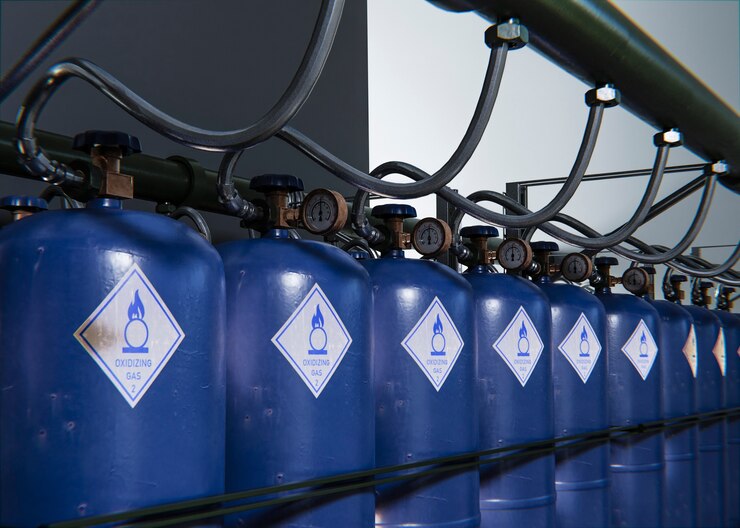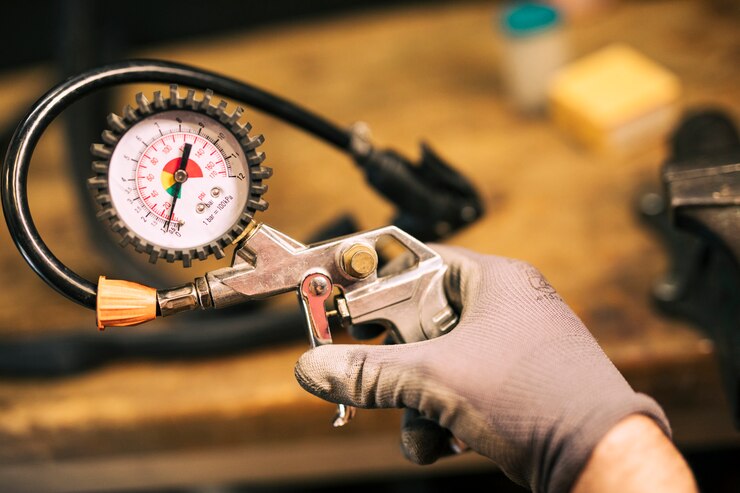Industrial Brand Air Compressors: A Comprehensive Review
Industrial brand air compressors are used in a variety of industries, including manufacturing, construction, and automotive. These compressors are designed to provide a reliable and efficient source of compressed air for powering tools and equipment. With a wide range of sizes and configurations available, industrial air compressors can be customized to meet the specific needs of any industry.

Industrial brand air compressors come in several different types, including reciprocating, rotary screw, and centrifugal compressors. Each type has its own unique features and benefits, and the choice of compressor will depend on the specific application and requirements of the user. Reciprocating compressors are ideal for smaller applications, while rotary screw compressors are better suited for larger, continuous-duty applications.
Key Features and Specifications of industrial brand air compressors include horsepower, CFM (cubic feet per minute), PSI (pounds per square inch), and tank size. These factors will determine the power and capacity of the compressor, as well as its ability to meet the demands of the user. Additionally, industrial air compressors may include features such as sound-dampening technology, energy-saving controls, and advanced filtration systems.
Key Takeaways
- Industrial brand air compressors are used in a variety of industries and can be customized to meet specific needs.
- There are several different types of industrial air compressors, each with its own unique features and benefits.
- Key features and specifications of industrial brand air compressors include horsepower, CFM, PSI, and tank size, among others.
Overview of Industrial Brand Air Compressors

Industrial brand air compressors are essential for many manufacturing and industrial processes. They are used to power pneumatic tools, control systems, and other equipment that require a constant supply of compressed air. Industrial air ammonia compressors come in a variety of sizes, styles, and designs, each with its own unique features and benefits.
One of the most important factors to consider when choosing an industrial air compressor is the type of compressor that is needed. There are several different types of industrial air compressors, including reciprocating, rotary screw, and centrifugal compressors. Reciprocating compressors are commonly used in small to medium-sized applications, while rotary screw compressors are better suited for larger applications. Centrifugal compressors are typically used for high-volume, high-pressure applications.
Another important consideration when choosing an industrial air compressor is the brand. There are many different brands of industrial air compressors on the market, each with its own strengths and weaknesses. Some of the most popular industrial air compressor brands include Atlas Copco, BOGE, Ingersoll Rand, and Quincy.
When evaluating different industrial air compressor brands, it is important to consider factors such as reliability, efficiency, and ease of maintenance. It is also important to consider the specific needs of the application, such as the required air pressure and flow rate. By carefully considering these factors, it is possible to choose an industrial air compressor that will provide reliable and efficient performance for many years to come.
Types of Industrial Air Compressors
Industrial air compressors come in various types and sizes, each designed to meet specific needs. The three most common types of industrial air compressors are rotary screw compressors, reciprocating compressors, and centrifugal compressors.
Rotary Screw Compressors
Rotary screw compressors are commonly used in industrial applications that require continuous air supply. These compressors use two interlocking screws to compress air and deliver it through a discharge port. They are known for their high efficiency, low noise levels, and minimal maintenance requirements. Rotary screw compressors are ideal for applications that require a constant supply of compressed air, such as manufacturing plants, automotive shops, and construction sites.
Reciprocating Compressors
Reciprocating compressors, also known as piston compressors, are the most common type of industrial air compressor. They use a piston and cylinder to compress air, which is then delivered through a discharge valve. Reciprocating compressors are available in both single-stage and two-stage configurations. They are ideal for applications that require high pressure, such as drilling, sandblasting, and spray painting.
Centrifugal Compressors
Centrifugal compressors are used in large industrial applications that require a high volume of compressed air. These compressors use a rotating impeller to compress air, which is then delivered through a diffuser. Centrifugal compressors are known for their high efficiency and low maintenance requirements. They are ideal for applications such as power generation, natural gas processing, and refrigeration.
Overall, the type of industrial air compressor that is best for a particular application depends on several factors, including the required flow rate, pressure, and duty cycle. It is important to consult with a qualified professional to determine the most appropriate compressor for a specific application.
Key Features and Specifications

When it comes to industrial brand air compressors, there are several key features and specifications to consider. These machines are designed for heavy-duty use in a variety of settings, from construction sites to manufacturing plants. Here are some of the most important factors to keep in mind when choosing an industrial air compressor.
Power and Capacity
One of the most important considerations when selecting an industrial air compressor is its power and capacity. This refers to the amount of air the compressor can deliver, as well as the pressure it can generate. Industrial compressors typically have a higher capacity than consumer-grade models, with some machines capable of delivering hundreds of cubic feet of air per minute.
In addition to capacity, it’s also important to consider the power source for the compressor. Some models run on electricity, while others are powered by gasoline or diesel engines. Electric models are typically quieter and more efficient, but they may not be suitable for use in areas without access to power outlets.
Efficiency and Performance
Efficiency and performance are also key considerations when choosing an industrial air compressor. Look for models that are designed to operate at peak efficiency, with features like thermal overload switches and oil-free pumps to minimize energy waste.
Another important factor to consider is the compressor’s duty cycle, which refers to the amount of time the compressor can run without overheating. A longer duty cycle means that the compressor can operate for longer periods of time without requiring a break.
Durability and Reliability
Finally, it’s important to choose an industrial air compressor that is built to last. Look for models with durable components and a solid construction, as well as features like automatic shutdown systems to prevent damage in the event of a malfunction.
Reliability is also a key consideration, as downtime can be costly in industrial settings. Look for models with a proven track record of reliability, and consider investing in a maintenance plan to keep your compressor running smoothly for years to come.
Applications and Uses
Industrial brand air compressors are versatile machines that find their use in multiple industries. The following subsections will discuss the most common applications and uses of industrial air compressors.
Manufacturing Industry
Industrial air compressors are widely used in the manufacturing industry to power air tools on production lines. They are used for cutting and welding equipment, ejecting pieces from molds, monitoring production, and adjusting roller and feed machinery. The compressed air is also used to blow molded gas tanks or plastic bottles. In addition, air compressors are used in the food and beverage industry for packaging and labeling.
Automotive Industry
Air compressors are essential in the automotive industry for inflating tires, powering air tools, and sandblasting. They are used in gas stations to inflate vehicle tires. In addition, air compressors are used in tire shops to remove tires. Air compressors also power pneumatic tools, such as wrenches and grinders, used in automotive repair shops.
Construction and Mining
In the construction and mining industry, air compressors are used to power pneumatic tools for drilling, breaking, and excavation. They are also used to power heavy machinery and equipment, such as jackhammers and rock drills. Air compressors are also used in the construction industry for painting, sandblasting, and concrete spraying.
In conclusion, industrial air compressors are essential machines that find their use in multiple industries. Their versatility and reliability make them an indispensable tool for any business that requires compressed air.
Installation and Maintenance

Installation Requirements
When it comes to installing an industrial air compressor, there are several requirements that need to be met. First, it is important to determine the proper size compressor for the facility. This can be done by considering the air demand of the equipment and the number of users that will be operating the compressor. Once the size has been determined, the next step is to decide where to install the compressor. It is important to choose a location that is well-ventilated and free from any potential hazards such as flammable materials or chemicals.
Another important aspect of installation is ensuring that all local electrical and safety codes are followed, as well as the National Electrical Code (NEC) and the Occupational Safety and Health Act (OSHA). Electric motors must be securely and adequately grounded to prevent electrical shock. It is also recommended to install a pressure relief valve to prevent over-pressurization of the system.
Maintenance Guidelines
Proper maintenance is crucial to ensure the longevity and efficiency of an industrial air compressor. Regular maintenance can prevent unexpected downtime and costly repairs. Some basic maintenance guidelines include:
- Checking the oil level and changing the oil on a regular basis
- Inspecting and replacing air filters as needed
- Checking for leaks in the system
- Inspecting and tightening bolts and fittings
- Checking the pressure relief valve for proper operation
It is also recommended to have a preventative maintenance program in place that prevents problems with the air compressor and its components rather than reacting to them. This can include regular inspections and maintenance performed by a qualified technician.
By following these installation and maintenance guidelines, an industrial air compressor can provide reliable and efficient operation for many years.
Safety and Operational Considerations

Safety Features
When it comes to industrial brand air compressors, safety is always a top priority. These machines are designed to operate at high pressures and can be dangerous if not used correctly. That’s why most industrial air compressors come with a range of safety features to help prevent accidents and injuries.
One of the most important safety features is an automatic shut-off switch that activates when the compressor reaches its maximum pressure. This prevents the compressor from over-pressurizing and potentially exploding, which could cause serious harm to anyone nearby.
Another safety feature is a pressure relief valve, which opens automatically if the pressure inside the compressor becomes too high. This helps to release excess pressure and prevent any damage to the compressor or nearby equipment.
In addition to these safety features, it’s important to follow all operational and maintenance guidelines provided by the manufacturer. This includes regular inspections, proper use of personal protective equipment, and ensuring that all hoses and fittings are in good condition.
Operational Best Practices
To ensure safe and efficient operation of an industrial air compressor, there are several best practices that should be followed. These include:
- Always follow the manufacturer’s recommended operating procedures and maintenance guidelines.
- Never exceed the maximum pressure rating of the compressor or use it for purposes other than its intended use.
- Use only approved hoses and fittings that are rated for the pressure and temperature of the compressed air.
- Keep the compressor and surrounding area clean and free of debris.
- Regularly inspect the compressor for any signs of wear or damage, and address any issues immediately.
- Use personal protective equipment, such as safety glasses and hearing protection, when operating the compressor.
By following these safety and operational best practices, users can ensure safe and efficient operation of their industrial brand air compressor.
Environmental Impact and Energy Consumption
Industrial brand air compressors have a significant impact on the environment due to their high energy consumption. According to the U.S. Department of Energy, generating compressed air accounts for 10 to 30 percent of a plant’s electricity costs ¹. This sizable impact on costs has led to a keen interest in reducing the energy demands of compressors.
One way to reduce the energy consumption of air compressors is to invest in environment-friendly compressors that use significantly less energy. This can sharply reduce both the production cost of compressed air and a company’s carbon footprint ².
Another way to reduce energy consumption is to optimize existing air systems. This involves analyzing the energy performance, exergy efficiency, CO2 emission, sustainability, and the associated economic implications of an industrial air compressor system ³. The necessary input data is taken from the industry to analyze energy, exergy, emission, and sustainability.
Overall, it is essential to consider the environmental impact of industrial brand air compressors and take steps to reduce their energy consumption. By investing in environment-friendly compressors and optimizing existing air systems, companies can reduce their carbon footprint and save on energy costs.
Brands and Manufacturers
Leading Brands
When it comes to industrial air compressors, there are several leading brands that are well-known for their quality and reliability. One such brand is Atlas Copco, which has been providing industrial production solutions since 1873. They offer a wide range of air compressors suitable for various industries, including oil-free and oil-injected compressors.
Another leading brand is Ingersoll Rand, which has been in business for over 150 years and is known for its innovative and efficient air compressors. They offer a range of compressors, including rotary screw, reciprocating, and centrifugal compressors.
Other notable brands include Sullair, Quincy Compressor, and Kaeser Compressors. Each of these brands offers a range of air compressors suitable for different applications and industries.
Choosing the Right Manufacturer
When choosing an industrial air compressor, it’s important to consider the manufacturer’s reputation for quality and reliability. Look for a manufacturer that has a proven track record of providing high-quality products and excellent customer service.
It’s also important to consider the specific needs of your business when choosing a manufacturer. Consider factors such as the size and power requirements of your air compressor, as well as any special features or capabilities that you may require.
In addition to considering the manufacturer’s reputation and your specific needs, it’s also important to consider the cost of the air compressor. Look for a manufacturer that offers competitive pricing without sacrificing quality or reliability.
Overall, by choosing a reputable manufacturer with a proven track record of providing high-quality products and excellent customer service, you can ensure that you get the best possible air compressor for your business’s needs.
Frequently Asked Questions
What are the key features to look for in a heavy-duty industrial air compressor?
When searching for a heavy-duty industrial air compressor, there are several key features to consider. First and foremost, it is important to look for a compressor that has a high CFM (cubic feet per minute) rating, as this will determine the compressor’s ability to supply air to your tools and equipment. Additionally, it is important to consider the compressor’s horsepower, tank size, and overall durability.
How do I determine the appropriate size of an industrial air compressor for my business needs?
To determine the appropriate size of an industrial air compressor for your business needs, you will need to consider the amount of air flow required to power your tools and equipment. This can be determined by calculating the total CFM requirements of all the tools and equipment you plan to use simultaneously. It is also important to consider the compressor’s duty cycle, or the amount of time it can run continuously without overheating.
Where can I find reliable industrial air compressors for sale?
Reliable industrial air compressors can be found from a variety of sources, including manufacturers, distributors, and retailers. It is important to do your research and choose a reputable seller who offers quality products and reliable customer service. Some leading brands in the industrial air compressor market include Atlas Copco, Ingersoll Rand, and Quincy Compressor.
What factors influence the price of an industrial air compressor?
The price of an industrial air compressor can be influenced by a variety of factors, including its size, horsepower, and overall quality. Additionally, the brand and features of the compressor can also affect its price. It is important to consider your business needs and budget when selecting an industrial air compressor.
How do I source replacement parts for an industrial air compressor?
When sourcing replacement parts for an industrial air compressor, it is important to choose parts that are compatible with your specific make and model of compressor. Replacement parts can typically be found through the manufacturer or through third-party suppliers who specialize in compressor parts. It is important to choose quality parts to ensure the longevity and efficiency of your compressor.
What are the leading brands in the industrial air compressor market?
Some of the leading brands in the industrial air compressor market include Atlas Copco, Ingersoll Rand, Quincy Compressor, and Sullair. These brands are known for their high-quality, durable products and reliable customer service. When selecting an industrial air compressor, it is important to consider the reputation and track record of the brand.



